The Great Muslim American Road Trip - TV Series in Production
By Aminah Koshul
Chicago
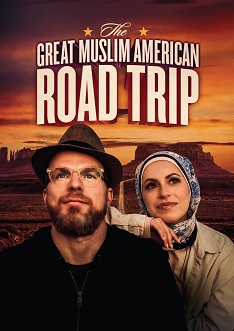
Route 66, the most famous road in America, is widely celebrated in music and movies. It harkens back to a time of cross-country travel and adventure. Now, an upcoming TV series for PBS, called the Great Muslim American Road Trip, will feature a journey along Route 66 to discover America and to uncover its Muslim roots.
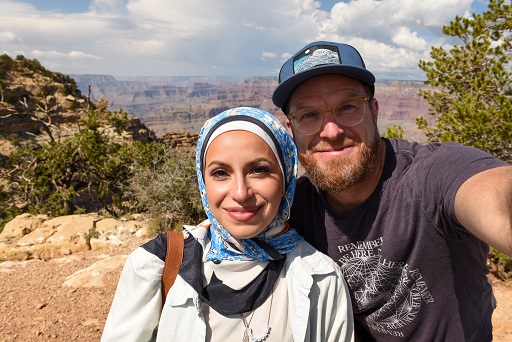
The series is currently in the production and fundraising stage, and features rapper Mona Haydar and her husband Sebastian Robins, a millennial Muslim couple who’ve embarked on a second honeymoon and are curious about the American Muslim experience. Haydar and Robins journey from Chicago to LA and discover the many contributions Muslims have made to wider society and stories of Muslims from America's past. They meet with activists, entrepreneurs, and artists throughout their journey, bringing a personable and fun style to the docuseries.
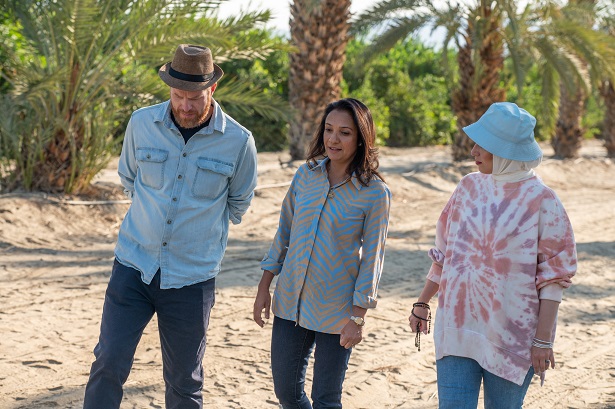
This three-hour documentary is being produced by Unity Productions Foundation (UPF), a non-profit media organization founded by Muslims that has made numerous award-winning films for American television. Some of their best-known works include Muhammad: Legacy of a Prophet, the Emmy-nominated The Sultan and the Saint:A Story of Muslim-Christian Peacemaking, and Prince Among Slaves: The True Story of an African Muslim Prince Enslaved in the American South and the animated Lamya’s Poem about Rumi and a Syrian Refugee Girl.
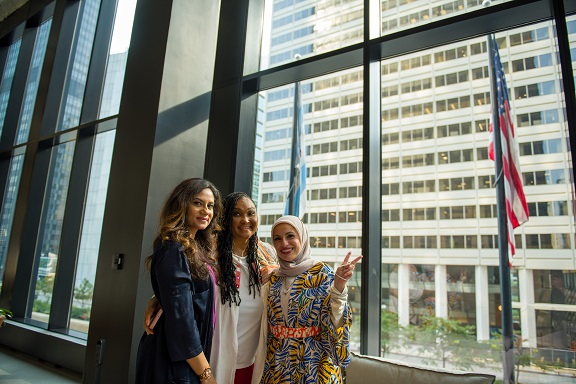
"We wanted an engaging way of telling the story of American Muslims. Not just historians giving commentary, but interesting encounters during the journey so the audience discovers what the hosts discover.” said Alex Kronemer, Co-Founder of UPF and Director of series.
UPF Co-Founder and Executive Producer Michael Wolfe concurs. “ In all our films we combine the goals of educating people about Muslims and making an entertaining TV program.”
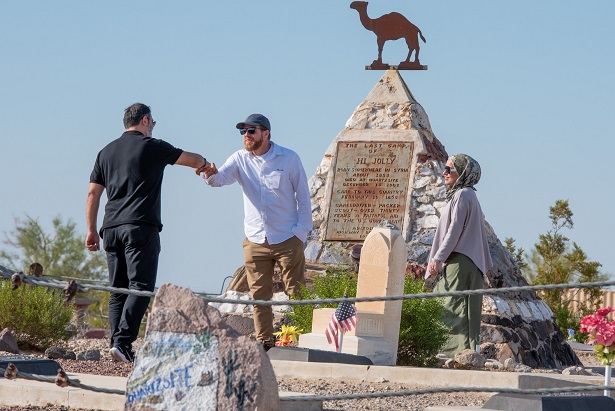
Wolfe and Kronemer themselves both learned production making films on Hajj for ABC and CNN respectively.
Through vlog-style narration, documentary footage and stunning visuals of the American landscape, the road trip series explores themes of identity and belonging.
Highlights
Chicago, IL
Haydar and Robins begin their whirlwind three-week Route 66 road trip in Chicago, meeting Maryum Ali, daughter of Muhammad Ali, and civil-rights attorney Maaria Mozaffer, who give them an overview of the Muslim story. They also visit the city’s best-known skyscraper, The Willis Tower, an icon designed by American Muslim architect Fazlur Rahman Khan, who is often called “Greatest Structural Engineer of the 20th Century.”
St Louis, MO
Immigrants brought heart and vibrancy to economically depressed areas of the American Midwest and today St Louis is home to more than 70,000 Bosnian Muslims. Haydar and Robins learn about the 1904 St Louis World’s Fair, an event that kicked off one of the first major influxes of Muslim immigrants, bringing to its prairie culture various Arab and Muslim influences.
Joplin, MO
In 2011, a mega tornado destroyed 20 percent of Joplin, MO, including one of its greatest hospitals. One year later, an arsonist set fire to the city’s only mosque. The hosts meet today’s Muslim doctors and their families to learn their motivation for service, the Qur’anic injunction that “to save one life is to save all of humanity.”
Tulsa, OK
Tulsa’s Greenwood District was known as “Black Wall Street” because of the affluent, professional African American population, but it was destroyed by racists over a hundred years ago. They learn about an interfaith healing effort led in part by Muslims and about the history of African Americans coming to Islam. They also visit a jazz museum and learn from musician Leon Rollerson about the many Muslim jazz artists he performed with.
Santa Fe, NM
Traveling southwest, Haydar meets Father Tim Martinez at the site of the oldest wooden statue of the Virgin Mary in the United States. Their conversation highlights similarities between Christianity and Islam, specifically the reverence that both faiths express towards Mary.
Albuquerque, NM
The couple meet the Albuquerque Robotics Team, aka “The Marvels,” a group of avid teenage techies and their coaches at the local Islamic Center and learn about the problems in science and technology these young Muslims hope to solve one day.
Las Vegas, NV
Haydar and Robins meet doctors and a former incarcerated Muslim who established a center to help people avoid the drugs and violence that trap so many in Las Vegas, where all that glitters isn’t gold.
Mecca, CA
In the heart of Coachella Valley, in a remote oasis in desert California, the entrepreneurial Alya Ha grows and delivers freshly packed Medjoul dates to every state from her ranch called Nature’s Anthem. An estimated 90 percent of all dates consumed in the US are grown in the US, making dates a great American fruit.
San Bernardino, CA
Continuing westward, our hosts visit the Al Shifa Free Medical Clinic in San Bernardino, one of over a hundred Muslim-operated free medical clinics around the country.
“Showing Muslims of different backgrounds engaged in service, even in small towns, was so important to us, because that is the reality,” said Executive Producer Jawaad Abdul Rahman. “My dad is a small-town doctor of Pakistani decent and we were the only Muslim family where we lived. I saw how he treated his patients with love and compassion”. “Viewers will get a great feel for the diversity of the Muslim community from the people Mona and Sebastian meet.”
In conclusion, The Great Muslim American Road Trip can do great things to help educate the American public about Muslims and promote understanding, but needs your support. Funds are needed to complete the project. You can sign up for a webinar to watch scenes from the film at upf.tv/roadtrip or donate at upf.tv/donate. Contributions are tax-deductible. If you would like to organize a house party fundraiser or have questions about the film, you can email Jawaad Abdul Rahman, jar@upf.tv .
Go to upf.tv/roadtrip to register for a virtual event to watch footage and to donate. Contributors who give $25,000 or more toward the film will get their names in the opening credits, similar to other PBS films.
-----------------------------------------------------------------------------
Back to Pakistanlink Homepage

